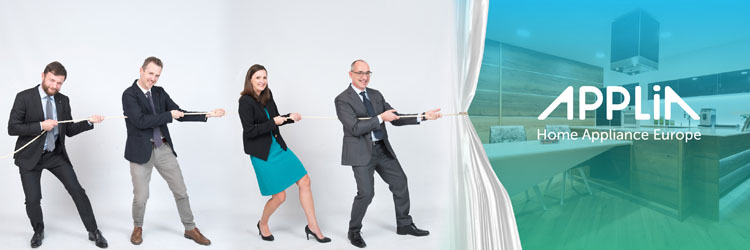
This year Ceced Europe has celebrated its 60 anniversary and the Association has decided to renew itself starting from a new name: APPLia. This changing is only the beginning of the deep modernization that has been undertaken by Ceced to represent the European home appliances sector in the best way. A sector that, according to the words of the APPLiA’s general director, Paolo Falcioni, is more and more innovative and sustainable. The transformation of the Association wants to preserve all the values and essence of this historical organization, improving the structure and the services with the same pace of the modern times and of the rapid development of the home appliances industry.
“By us, by you for better lifestyles in Europe” is the claim of the new APPLiA organization and its role will go on being that of representing the appliance industry in front of the EU Commission, underlining the needs of the sector, showing its importance and trying to obtain the better condition for a constant growth, as done during the EUIndustry Days, that took place on 22nd and 23rd February in Brussels. Followed by the large coalition of 126 industry associations for a renewed EU Industrial Policy Strategy, initiated in the beginning of 2017 (#Industry4Europe), this year’s event was the opportunity for the industry to hear how the EU decision makers will respond to their asks.
The initiative was also mentioned by the president of the Commission, Jean-Claude Juncker who said that it brings everything that the industry and the institutions have been doing until now. He also noted that 32 million people work in the industrial sector, while the productivity increased by 1%. last year. During the event, another discussed theme was circular economy. As APPLiA underlined in its event report, the transition towards circularity will be a main field of investment in Europe for the next decades. But can we have a real circular economy if we don’t take into account the contribution of energy efficiency and digitalisation? In this context, the session organised by Orgalime focused on the importance of the investment on digital, low-carbon, energy-efficiency technologies that can create new opportunities for citizens, employees and industry.
Viktor Sundberg from Electrolux mentioned that the improvements that have been made in home appliances have certainly contributed to energy efficiency. More concretely, he said that smart appliances can lower CO2 emissions, up to 170 Mton per year by 2030 by using energy in less peak hours, on cheaper tariffs.



